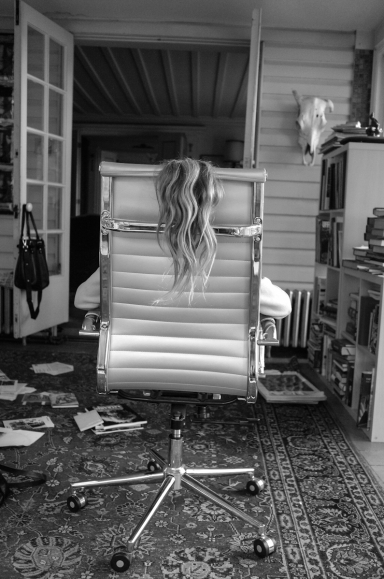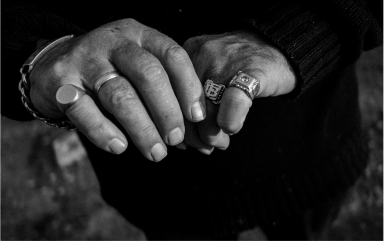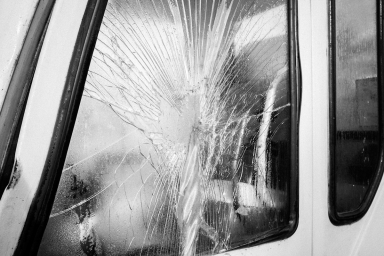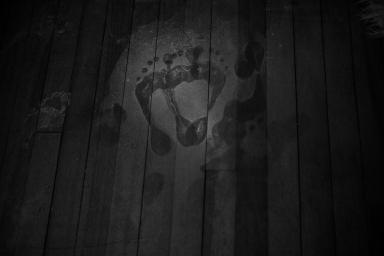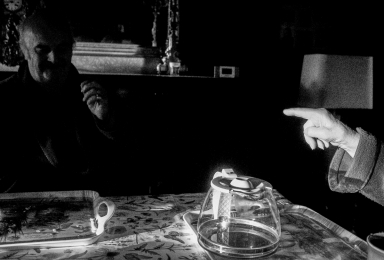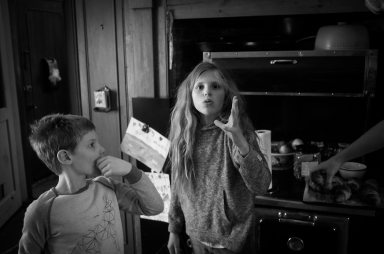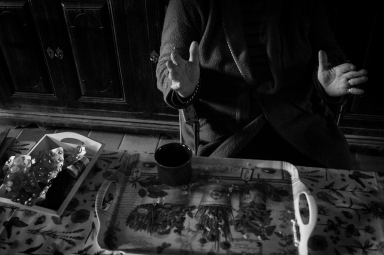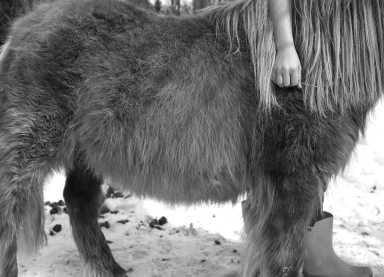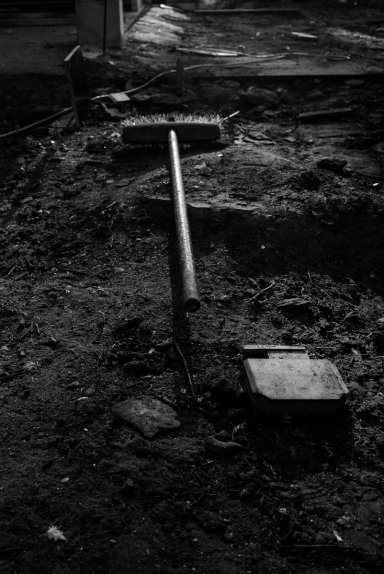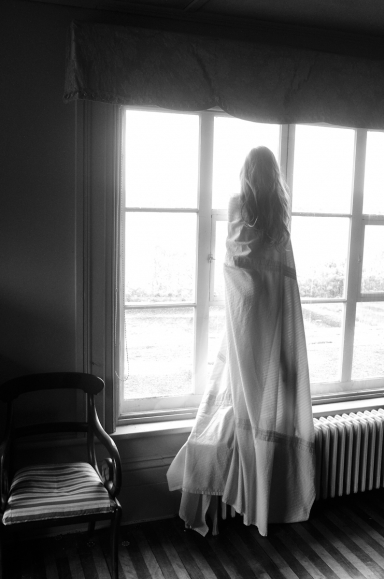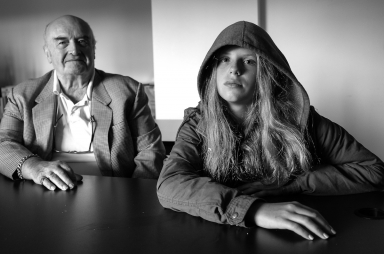Cince Johnston | O+
June 1, 2020
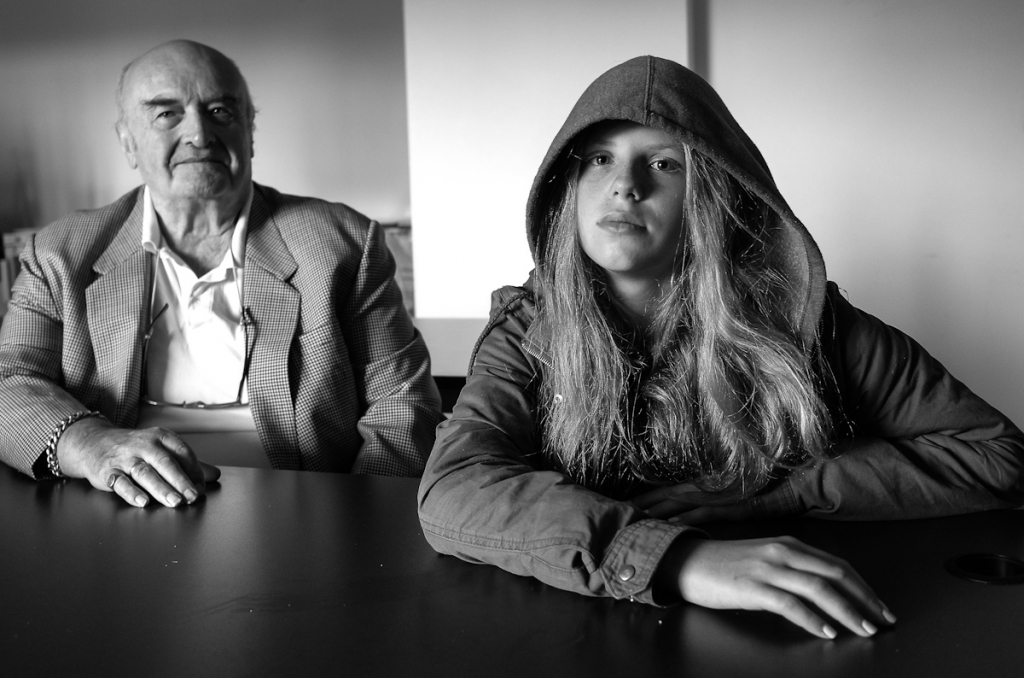
Cince Johnston’s project ‘O+’ charts the life of her 13 year old daughter and the unexpected link that she shares with a 75 year old Belgian man named Freddy. In 2008, both individuals were the recipients of a liver from the same organ donor. Ten years after the transplant, Johnston and her daughter traveled from Canada to meet Freddy for the first time.
Aesthetically, Johnston’s images are composed with a soft, poetic grace. However, they still manage to convey the raw, unfiltered emotional states that her subjects inhabit. Johnston invites us to sit with both of these individuals, to understand their connection, and to simultaneously experience the undulations of the different lives that they lead. One is the impetuous, yet blossoming world of teen who is exploring the options of a life that stretches out before her. The other is the waxing world of an elderly man, whose days are becoming quieter, simpler and slower. And yet, buried within them both, is something shared. It generates a gravitational pull between them that is so strong, that for a brief moment, it propelled the separate orbits of their lives to intersect.
I think a lot about connection these days. As I continue to live in self-isolation, I often feel as though I am tethered to others by tender, invisible threads. Sometimes, in the little world of my apartment, I forget that they are there; these lines of connective tissue that bind me to others. At other times, I pull at these fragile filaments, testing their strength, and hoping to feel a reciprocal tug from the other side of the distance that they span.
I see Johnston’s project as a reminder that there is someone there on the other end of the string. Freddy and Johnston’s daughter shared a common vital organ. Once divided, I imagine it having its own impulse to seek wholeness again, even if only for a moment. What if there is some version of this happening in all of us? I imagine that we possess a second set of vital organs; ones that are not made of tissue, cells and blood. They are instead formed from more mercurial elements, such as memories, feelings, and experiences. And while they cannot be observed under a microscope, they are just as essential to our survival. Perhaps these tiny vessels, though currently divided, have a pull of their own to reclaim wholeness.
- Mia
View more here.
